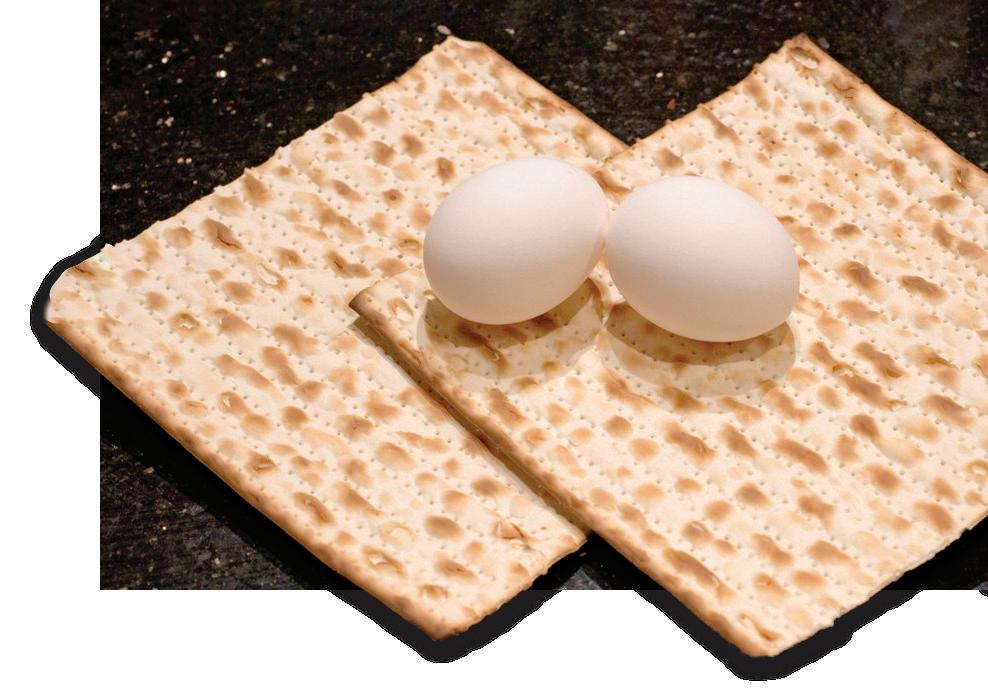
2 minute read
Tavshilin Eruv
BY RABBI DOVID ROSEN
Pesach this year begins on a Wednesday night, which means that the first two days of Yom Tov are immediately followed by Shabbos. In order to be able to prepare for Shabbos on erev Shabbos, an eruv tavshilin must be made. An eruv tavshilin is a halachic mechanism which allows one to prepare and cook on Yom Tov for the following day which is Shabbos. Typically, we are only allowed to cook on Yom Tov for that day’s holiday which is why an eruv tavshilin would be required. The eruv tavshilin is made on erev Yom Tov – which this Pesach is Wednesday, April 5.
Advertisement
If one is certain that no melacha will be done on erev Shabbos, then no eruv tavshilin would be required. If one is unsure if melacha will need to be done, an eruv should be made with a bracha as usual. Making an eruv gives one an allowance that, if the need arises, one would be allowed to prepare for Shabbos on erev Shabbos. Even if the only melacha that will be done is lighting Shabbos candles, an eruv should be made with a bracha
The eruv is made with a cooked food and a baked item. For the cooked food, a hard-boiled egg, a piece of chicken, or a piece of fish is typically used. Cooked desserts (i.e. apple sauce) would not be acceptable. The cooked food must be at least the size of a kezayis. The baked item – typically a matzah – should be at least the size of a kebeitza. (A matzah is larger than a kebeitza.)
The eruv foods are held in one’s right hand when making the eruv, both for the bracha and the declaration that follows. If one does not understand the text of the declaration, it should be said in a language that they understand as well.
Now that the eruv is made, one may prepare on erev Shabbos for Shabbos
The eruv foods must not be eaten or lost before preparing the food for Shabbos
It is most preferable that all foods being prepared on Friday be fully cooked before the onset of Shabbos
It is commendable to eat the eruv foods on Shabbos
Family members and guests are automatically included in the baal habayis’ eruv tavshilin. The following are a number of scenarios where one is included in the baal habayis’ eruv:
1. Children – even married children – who are guests in their parents’ home, are automatically included in their parents’ eruv tavshilin
2. Parents who are being hosted by their children are automatically included in their children’s eruv tavshilin
3. Non-related guests are automatically included in their host’s eruv tavshilin
4. In the situation where guests (related or not related) are not sleeping at the host’s home, or if someone has their own apartment and will be eating out all their meals at one host, they are halachically automatically included in their host’s eruv tavshilin. However, it is preferable for the guest to have partial ownership in the host’s eruv foods. The guest or someone acting on the guest’s behalf should make a kinyan on the foods. Subsequently, when the host makes the eruv, it is on behalf of the guest as well.
5. If someone has their own apartment and will be eating their meals at multiple homes, they should make their own eruv tavshilin at home with a bracha
6. Hotel patrons at a Pesach hotel should rely on the eruv tavshilin that is made by the hotel kitchen staff. This includes a scenario where the hotel arranges for the patrons to sleep off-site.
As always, when in doubt, please consult your rabbi for guidance.








